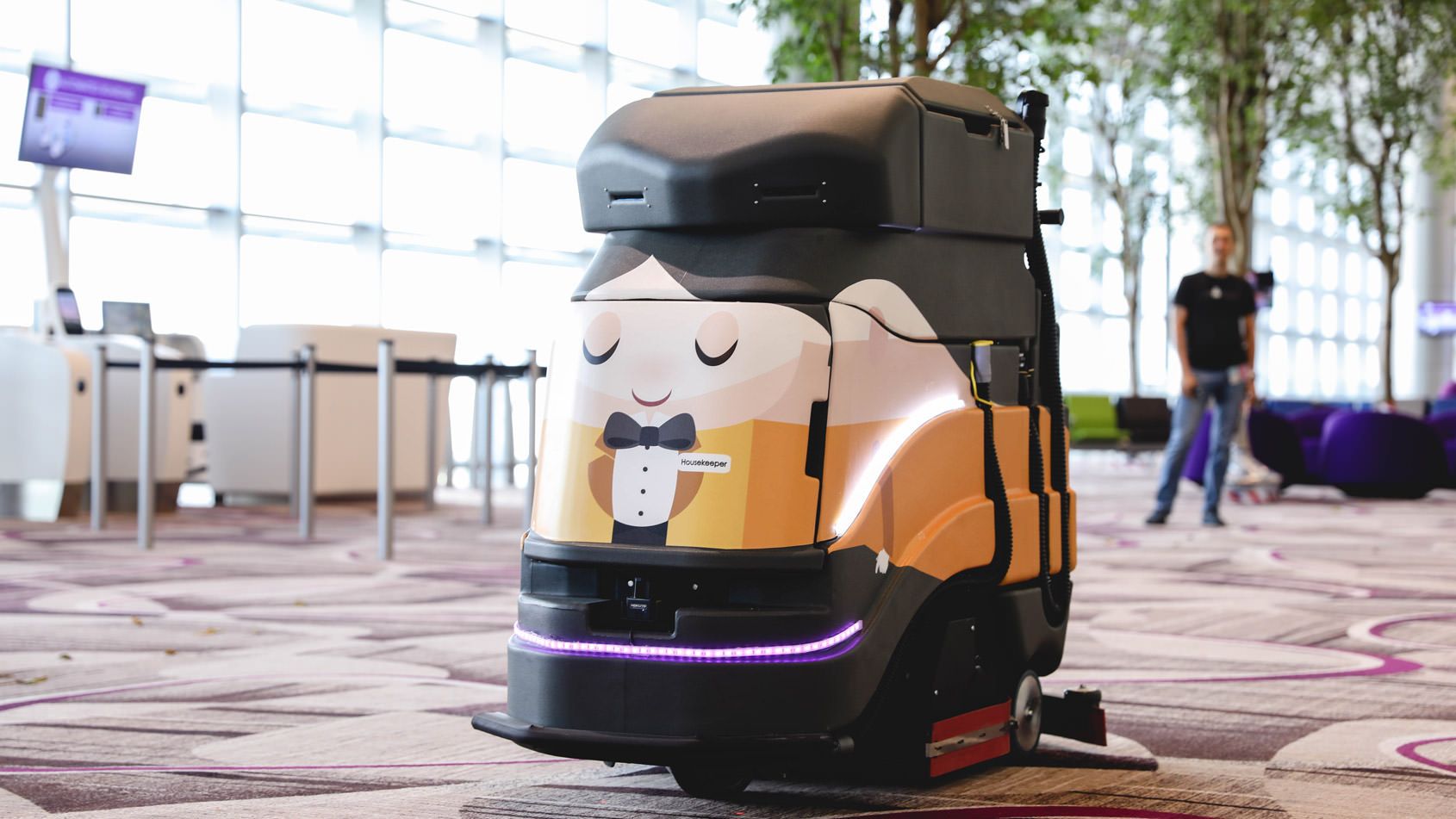The robotics industry is rapidly evolving and expanding—who will be the next robot unicorns?
Photo: Avidbots
HAX, a venture-capital firm and
hardware accelerator, has invested in over two dozen robotics companies,
including Avidbots, a Canadian startup that builds autonomous
floor-cleaning robots like the one above at Changi Airport in Singapore.
This is a guest post. The views expressed here are solely those of the author and do not represent positions of IEEE Spectrum or the IEEE.
Earlier this month I was in Denmark speaking at the R-18 robotics fair. Denmark is quite remarkable as, despite its size, it had two exits of robotics startups over US $100 million: Universal Robots and MiR, both acquired by U.S. electronics testing equipment maker Teradyne (currently valued around $7 billion).
The talk I gave covered our observations at HAX over the past five years from investing in over two dozen robotics startups and meeting hundreds.
I started with a little robot-focused quiz. Let’s see how you fare!
Robot Quiz
1. Which is the #1 home robotics company in the world?
2. Which famous robot pet just got back on market?
3. Which robotics companies were acquired by SoftBank?
4. What are the world’s robot unicorns? (Private companies valued over US $1 billion.)
5. Finally, as investors, the more important question for us is: Who are the next robot unicorns?
Easy? Let’s see!
1. Yes, it is iRobot, the maker of Roomba.
Many got it right. Interestingly, the answer was different a few months ago, when China’s Ecovacs (the local “iRobot”) went public. Today, both have a market cap around $2.5 billion.

Image: Ecovacs
Ecovacs sells robots for cleaning floors and windows.
2. Of course it is Sony’s Aibo.
The previous versions, sold from 1999 and for seven years, sold 150,000 units. The new one sold about 10,000 units in three months, for about $3,000 each. It’s not a small number, but the price and utility remain in question.
3. The most famous is Boston Dynamics, which SoftBank bought from Google.

Photo: SoftBank Robotics
Pepper, a humanoid robot created by Aldebaran, a French robotics firm acquired by SoftBank.
One audience member remembered Aldebaran, the French company that gave us Pepper. While it is still the most sophisticated tablet holder in the PR world, Pepper is an indication that we are far from achieving the (antiquated?) vision of humanoid robots living with us. It is also telling that Boston Dynamics seems to still be struggling to find a market.
4. Robot unicorns? There are a few. Here are some examples (we are not counting electric cars or space rockets here):

Images: Segway; UBTech; DJI; Desktop Metal
Which three of these four robot unicorns are Chinese?
...MUCH MORE5. Who the next unicorns are is harder to answer. See below for more.
- Chinese startups have multiplied. These include Ninebot (Chinese owners of Segway and worth $1.5 billion), the drone champion DJI (worth an alleged $15 billion), and the little known UBTech, which makes STEM robots (estimated at $5 billion).
- Adding digital fabrication machines, there is Carbon 3D and Desktop Metal from the United States.
- Public companies don’t count, but it’s still worth mentioning Japan’s Cyberdyne (an exoskeleton company worth $1.5 billion) and Germany’s Kuka (acquired by China’s appliances maker Midea for $4 billion).
Looking for the Next Robot Unicorns..
Regarding the picture at the top of the page, that's no unicorn.
This is a unicorn:

